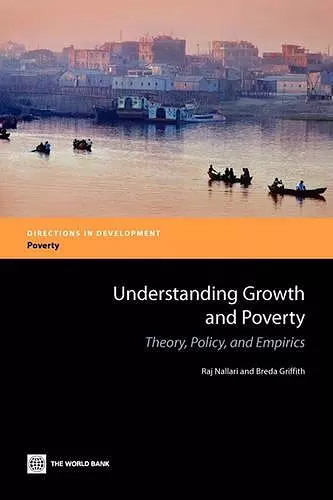Understanding Growth and Poverty
Theory, Policy, and Empirics
Breda Griffith editor Raj Nallari editor
Format:Paperback
Publisher:World Bank Publications
Published:1st Feb '11
Currently unavailable, and unfortunately no date known when it will be back

The literature on growth and poverty is voluminous and still evolving. This title distills the most important lessons from developing countries’ experience with growth and poverty. It provides a broad understanding of the impact of economic policies on growth and poverty reduction in developing countries. After describing basic economic relationships that summarize the workings and the measurement of the macroeconomy—and after confirming that growth is the most critical factor in alleviating poverty—the book turns to individual policy areas. These include the various roles of government, among them setting fiscal policy and maintaining an environment conducive to the effective operation of a market economy. Policies governing money supply, exchange rates, and the financial sector are also covered. After assessing several decades of experience with development assistance, the aim of which has been to place poor countries on a path of sustainable long-run growth, the study turns to a discussion of external debt. In the 1980s and 1990s, debt contracted by low-income countries from commercial and official sources became unsustainable, crippling their growth, keeping millions in poverty, and forcing an international reappraisal of lending policies, the centerpiece of which was a set of debt-forgiveness policies that was put forward with the launch of the Jubilee 2000 debt relief campaign. The remainder of the volume examines problems that can keep the poor from moving out of poverty. Trade, institutional development, regulation, education, health, labor markets, land and agriculture, natural resources, urbanization, technology, and politics—all are core components of public policy and need to be handled right if poverty is to be addressed effectively. Because many developing countries lack the capacity to mobilize resources—administrative and financial—to move the poor out of poverty, the international community must be actively involved. Looking ahead, rates of growth and poverty will be determined by how nations use knowledge, technology, and energy in firms and households, and by the effects of the warming climate on economic activities. Above all, the distribution of political and economic power within and among countries will determine the direction and dynamics of growth and development.
ISBN: 9780821369531
Dimensions: unknown
Weight: unknown
380 pages